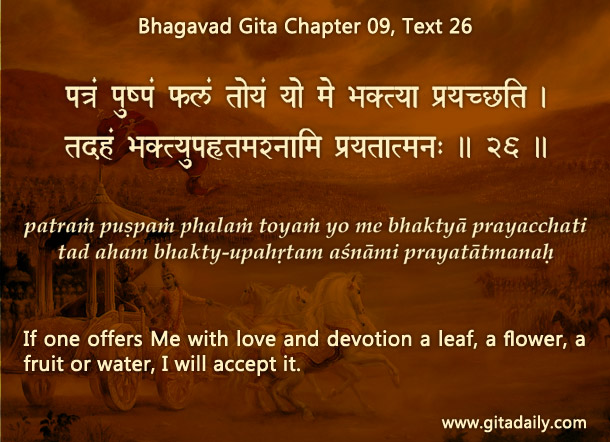Some people reduce religion down to a set of rituals, “If you just do the rites right, God will be pleased with you.”
Such a notion often emerges from a depersonalized conception of God, wherein his pleasure is treated as a product of mechanical precision. Rituals are consciously or subconsciously treated like mathematical formulas – success rests neither on comprehension or intention, but simply on precise application.
But God is no mathematical abstraction – he is a living, feeling person who loves us and wants us to love him. To give us a template for expressing our love, he gives us rituals through scriptures. Such scripturally-recommended rituals are important – they help us approach God in a tangible, accessible and repeatable way. But sometimes we can get so caught in the precise execution of rituals that we forget their essential intention: to facilitate us in expressing and intensifying our devotion, thereby helping us move closer to God.
The Bhagavad-gita (09.26) protects us from such forgetfulness by unambiguously stressing the essence when it declares that Krishna accepts even simple things such as a leaf, a flower, a fruit or even a little water when it is offered with devotion. This verse stresses the essence not only by its content – it mentions devotion twice – but also by its context: the Gita discusses elaborate rituals a few verses earlier (09.20-21). Of course, if we have the resources to worship Krishna grandly, then majestic performance of devotional rituals may well be the best way we can express our devotion.
But even if we can’t perform elaborate rituals, we can still offer Krishna whatever we have with a heart filled with devotion – or at least with the sincere desire for devotion – and thus please him and invoke his supreme grace.
Explanation of article:
Podcast:


nice pl keep it up